Expanding Access
to Essential Health Care
We seek to bring more medicines to more people and to improve health around the world. Our social investments focus on effective and sustainable health care delivery for underserved patients, wherever they live, while empowering our colleagues, strengthening our stakeholder relationships and ultimately having a positive impact on society and our business.
Commercial Programs to Improve Access
We are developing a portfolio of innovative business approaches as part of our strategy to increase access to our medicines in both developed and developing countries.


A novel agreement with the Bill & Melinda Gates Foundation and the Children's Investment Fund Foundation will help expand access to Pfizer's long-acting contraceptive, Sayana® Press, for millions of women most in need in 69 of the world's poorest countries.
Sayana Press, a pre-filled, single-use, non-reusable injection, is a re-designed version of an injectable contraceptive from Pfizer's Global Established Pharma's (GEP) women's health portfolio. Created with the target population of women in mind, it eliminates the need to prepare a needle and syringe, allowing the contraceptive to be administered by health workers at home or in other non-medical settings.
Through this agreement and the support of a public/private sector consortium including PATH, the United Kingdom's Department for International Development, the United Nations Population Fund, and the United States Agency for International Development, Sayana Press will be sold for one U.S. dollar per dose to qualified purchasers, who can help enable the poorest women in these countries to have access to the contraceptive at reduced or no cost.
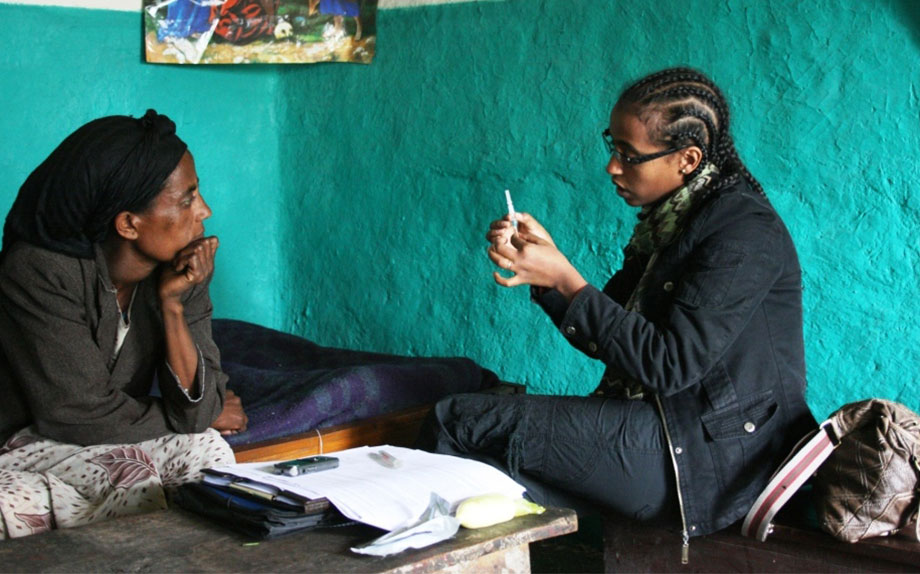
This novel collaboration expands access to the contraceptive, Sayana® Press, in 69 of the world's poorest countries.
Sayana® Press (medroxyprogesterone acetate) is not approved or available for use in the United States. (Photo: PATH)
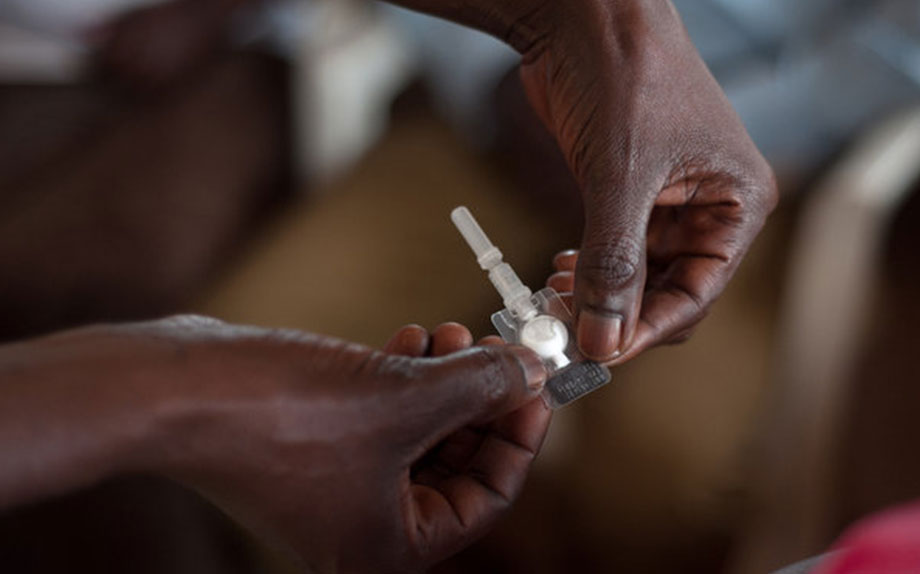
Experts have identified the need for a contraceptive method that can be administered in low resource, non-clinic settings.
Sayana® Press (medroxyprogesterone acetate) is not approved or available for use in the United States. (Photo: PATH)


Gavi, the Vaccine Alliance's AMC provides vaccines to the world's poorest countries on an accelerated, affordable and sustainable basis. Pfizer has committed to supply up to 740 million doses of Prevenar 13® through 2025. Prevenar 13 is available in more than 32 Gavi-eligible countries, with many additional launches planned. We are committed to helping meet the AMC's primary goal of reducing morbidity and mortality from pneumococcal disease and, specifically, to prevent an estimated seven million childhood deaths by 2030.
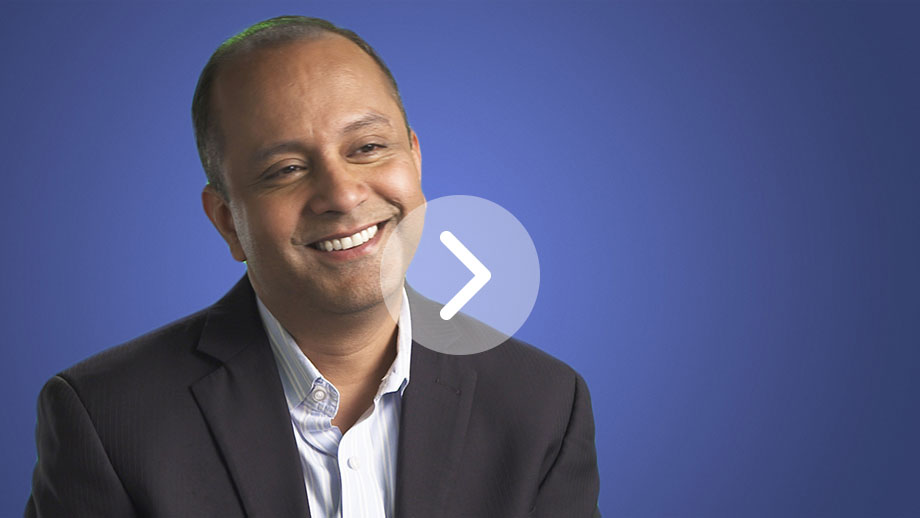
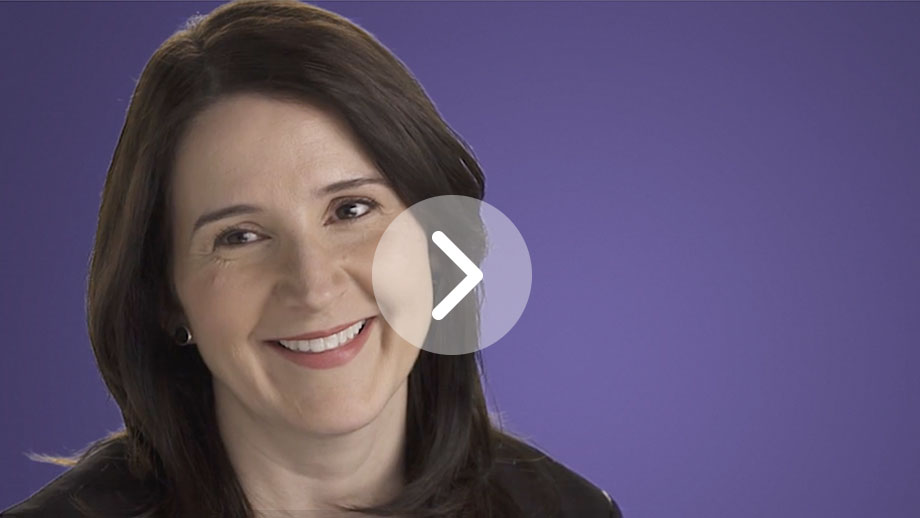
Building Health care Capacity Around the Globe
Weak or non-existent health care infrastructures represent a significant impediment — among the largest — to access. We continue to explore and implement models and approaches tailored to the diverse needs of patients in different geographies. Seeking holistic approaches, we work closely with governments, health organizations and other stakeholders to address the complex challenges around improving health for the underserved.


Last-MileVaccine
Coverage in Africa and Asia
The Pfizer Foundation is providing $3 million to support demonstration projects with the goal of improving immunization
coverage in Africa and Asia. The programs will focus on last-mile
interventions to reach children in remote locations in Indonesia,
Ethiopia, Malawi, Pakistan, Rwanda, Uganda and Zambia. Efforts support the United Nations Millennium Development Goal 4: to reduce under-five
child mortality by two-thirds between 1990 and 2015 by building the capacity of health care systems to ensure that efficient and sustainable
vaccine supplies are available to reach children who need access to vaccines. Interventions include providing health workers with mobile
phones and solar-powered tablets to register children and help track vaccination schedules in real time. Short-message service (SMS) systems
will be used to monitor vaccines and equipment to identify bottlenecks in the supply chain and prevent stock outs.


Our renowned colleague volunteer program places Pfizer colleagues in short-term assignments with international development organizations to
work together to bring about meaningful and systematic improvements in health service delivery. Fellows transfer their pharmaceutical and
business expertise in ways that promote access, quality and efficiency of health care. In exchange, Fellows return with experience and
relationships that help inform their ability to have an impact on pressing health concerns. The Global Health Fellows program has been
recognized as a best-in-class
program model for its impact on global health, as well as its value to Pfizer colleagues and the business.
To date, more than 330 colleagues have completed an estimated 330,000 hours in skills-based pro bono service, valued at more than $50
million, with local partners throughout the developing world.
We have created Global Health Teams to expand and diversify opportunities for colleagues beyond our individual fellowships. Since 2010, more than 60 colleagues have served on cross-functional teams with 19 nonprofit organizations across six countries in Latin America. In 2014, Pfizer launched the first executive-level Global Health Team project, deploying 12 senior leaders to volunteer their expertise with a global NGO, Population Services International, with the ultimate goal of assisting this leading international development organization in advancing its public health mission.
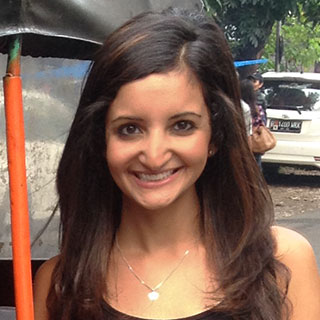
Nivedita Nehra
Global Health Fellow
|
Throughout this experience, I was constantly reminded that the word quality is not always synonymous with costly or complicated. A simple $40 produce scale was much more efficient and cost effective in saving the lives of babies than an $800 newborn scale that was far too expensive for most of these health care facilities. You really do return with a genuine appreciation for so many things, such as my team and company who encouraged me to embark on this amazing experience — and now produce scales have been added to that list. |

Kodjo Soroh
Global Health Fellow
|
I worked with the Accordia Global Health Foundation to establish collaborative partnerships in medical research between the West African Infectious Diseases Institute, Abuja, and 12 Nigerian universities. The institute will work to advance the fight against HIV, malaria and other infectious diseases in West Africa and bring better health care options for those in need. |


A joint effort by Pro Mujer, Mayo Clinic, Sesame Workshop and Pfizer, Healthy Connections promotes non-communicable disease prevention and family health among women and children in numerous countries across Latin America. Healthy Connections will use a new technology platform integrating mobile, web and video technology, along with remote training and access to specialists.


The Pfizer Foundation implemented a new strategy in impact investing to support social entrepreneurs and health innovators with the goal of improving health care delivery for populations at the base of the pyramid. Investments are made into funds with the intention to generate social impact alongside a potential financial return, and targeted grants will help to catalyze the pipeline of health innovators and provide technical assistance for growth. For example, we are working with the Unitus Seed Fund, which provides startup capital to enterprises that serve populations in India and Southeast Asia, and Acumen Capital Markets II, which focuses on India and East Africa.
Our investments in 2014 built on an initial investment in the Global Health Investment Fund (GHIF), a first-of-its-kind social investment fund designed to advance the development of drugs, vaccines, diagnostics and other interventions against diseases that disproportionately burden low income countries. For more information please see http://ghif.com/.


Global Health Agenda
We are supporting innovative approaches to enhancing capacity to prevent non-communicable diseases (NCDs) in under-resourced communities. Efforts focus on increasing community knowledge of NCD risk factors and preventive measures, such as support for quitting smoking; improving early detection and diagnosis capabilities; and, building health system capacity particularly in the primary care setting.
Learn more about innovative approaches to NCDs here.
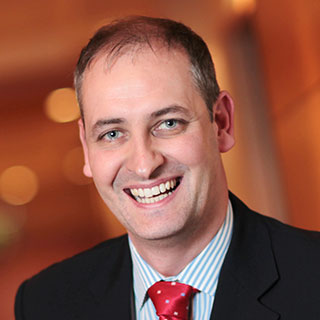
Paul Reid
GIP Lead
Country Manager for Ireland |
Pfizer is proud to support this important campaign. More than 40,000 people over the age of 50 in Ireland suffer from Atrial Fibrillation. However the vast majority of sufferers are unaware that they have it. It is a serious heart rhythm condition that can lead to serious complications. The campaign urges the public to have regular pulse checks as once the condition is detected it can be managed effectively. |


An R&D consortium dedicated to developing new solutions — including medicines, vaccines and diagnostics — for neglected tropical diseases, malaria and tuberculosis, WIPO Re:Search was created in partnership with the World Intellectual Property Organization (WIPO), BIO Ventures for Global Health and other leaders in the R&D pharmaceutical industry. The consortium has over 90 members from 26 countries, has 85 collaborations/research agreements in place, and has facilitated eight arrangements whereby scientists from both developed and developing countries are hosted by members of WIPO Re:Search. Pfizer is involved in several agreements where we are making specific contributions to advance external research programs targeting diarrhea, dengue fever and cerebral malaria.


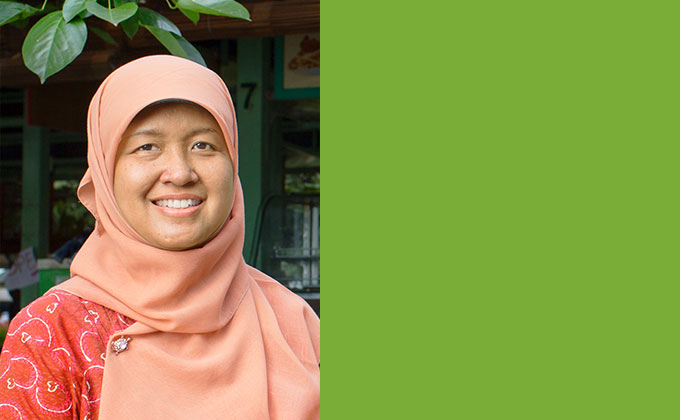
Global Partnerships to Expand Access
Pfizer helps expand access worldwide by working in partnership with non-governmental organizations, government agencies, multilateral aid organizations and other global health stakeholders to strengthen health care systems and improve care. Our investments also include programs that provide direct assistance, such as product donations and steep discounts, to help bridge current gaps in health care delivery to various underserved populations.


Pfizer Rx Pathways helps eligible patients in the U.S. get access to their Pfizer medicines by offering a range of support services, including insurance counseling, co-pay help, providing Pfizer medicines for free or at a savings, and more. Pfizer Rx Pathways is the latest in an array of prescription assistance programs that Pfizer has offered over the last 25 years to help eligible patients get their Pfizer medicines. For 2010–2014, the program enabled nearly 2.5 million uninsured or underinsured patients to get access to over 31 million Pfizer prescriptions. Pfizer also provides charitable donations to independent non-profit charitable organizations which support eligible patients who require help paying their out-of-pocket expenses, including co-pays or co-insurance. In 2014, Pfizer donated $7.9 million to co-pay foundations in the U.S. dedicated to helping patients obtain the life-saving medicines they need.

Ratna Bindra
Director
Pfizer Rx Pathways |
We are actively building partnerships to spread the word on Pfizer's access programs, working with nonprofits, advocacy groups, practitioners and community health centers to help fill the gap for people who need help in getting quality health care. |


Through this partnership, Pfizer provides, free of charge to government and non-governmental organizations in developing countries, Diflucan® (fluconazole) for the treatment of two fungal opportunistic infections associated with HIV and AIDS — cryptococcal meningitis and esophageal candidiasis. Since the launch of the program in 2000, Pfizer has donated over $1.4 billion in medicine to more than 6,000 sites in 63 countries in Africa, Asia, the Caribbean and Latin America. Fifteen years into the program, Pfizer has clearly demonstrated its commitment to addressing public health issues in the developing world by helping improve the quality of life of people living with HIV and AIDS.


Initiative (ITI)
A global program Pfizer helped to found, ITI has been working since 1998 to eliminate blinding trachoma as a public health concern. Through the ITI, we have donated more than 400 million doses of the antibiotic Zithromax® (azithromycin) to prevent and treat trachoma in support of the World Health Organization-led Global Alliance for the Elimination of Trachoma by the year 2020.






